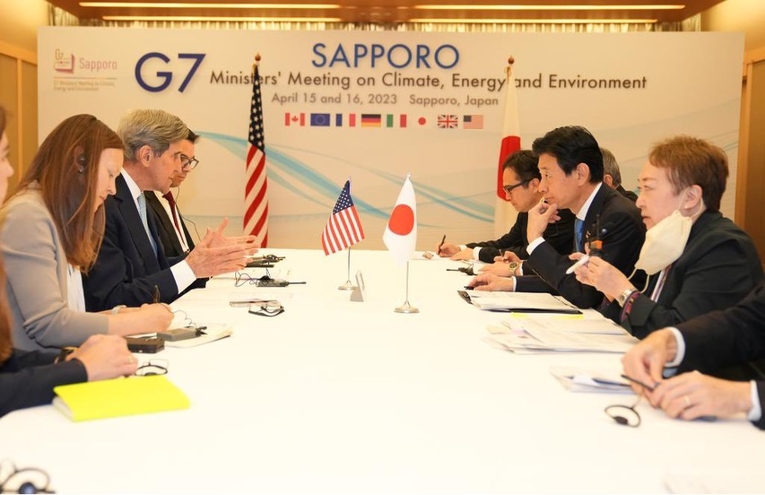No products in the basket.
G7 commits to ending plastics pollution by 2040
Posted onThe G7 economic bloc of some of the world’s largest economies is out with a declaration committing its member countries to end plastics pollution by 2040, including taking steps to reduce microplastics and consider phase-outs of nonrecyclable plastics and “harmful” additives.

The G7 economic bloc of some of the world’s largest economies is out with a declaration committing its member countries to end plastics pollution by 2040, including taking steps to reduce microplastics and consider phase-outs of nonrecyclable plastics and “harmful” additives.
The April 16 statement from the bloc, which includes Canada, the European Union, Japan and the United States, also included an endorsement of the global plastics treaty talks, which have their second round of negotiations scheduled in May in Paris.
The G7 has made previous statements around plastics pollution, including a 2018 ocean plastics charter that, conspicuously at the time, was not signed by the United States and Japan.
But this 2023 statement was agreed to by all seven national governments and the EU, which attends.
It came in a communique to close April 15-16 meetings of the bloc’s environment ministers, in Sapporo, Japan.
While G7 declarations are not binding, the statement said the countries would “step up our actions based on a comprehensive lifecycle approach, promoting sustainable consumption and production of plastics, increasing their circularity in the economy and environmentally sound management of waste.”
The communique went on:
“These actions include, as appropriate: addressing single-use plastics, nonrecyclable plastics as well as plastics with harmful additives through measures such as phasing out when possible and reducing their production and consumption; applying tools to internalize attributable costs of plastic pollution; and addressing the sources, pathways and impacts of microplastics,” it said.
Andres Del Castillo, a treaty negotiator for the Center for International Environmental Law, said on Twitter that the G7 declaration is halfway between treaty positions of the so-called High Ambition Coalition of countries seeking a strict treaty, and the Osaka Blue Ocean Vision, agreed to by G20 countries in 2019.
Del Castillo expressed concern over communique language that could be read as weakening a potential treaty but praised the G7 for picking a 2040 deadline and framing it the problem as plastics pollution instead of marine plastics litter.
He also pointed to an April 16 social media post from French President Emmanuel Macron endorsing the G7 declaration. G7 members include France, Germany, the United Kingdom and Italy.
The communique included specific statements endorsing talks at the International Maritime Organization on marking and reporting abandoned fishing gear, considered a large source of macroplastics in the oceans.
Regarding the treaty, the G7 said it expected negotiators to consider “the negative impacts of plastic pollution to the environment and our economy and its related risks to human health as well as the important role played by plastics in society,” and said it wanted the talks to finish by the end of 2024.
The statement from the G7 ministers of climate, energy and the environment comes ahead of the full G7 Summit May 19-21 in Hiroshima.
Source: sustainableplastics.com



 Tiếng Việt
Tiếng Việt